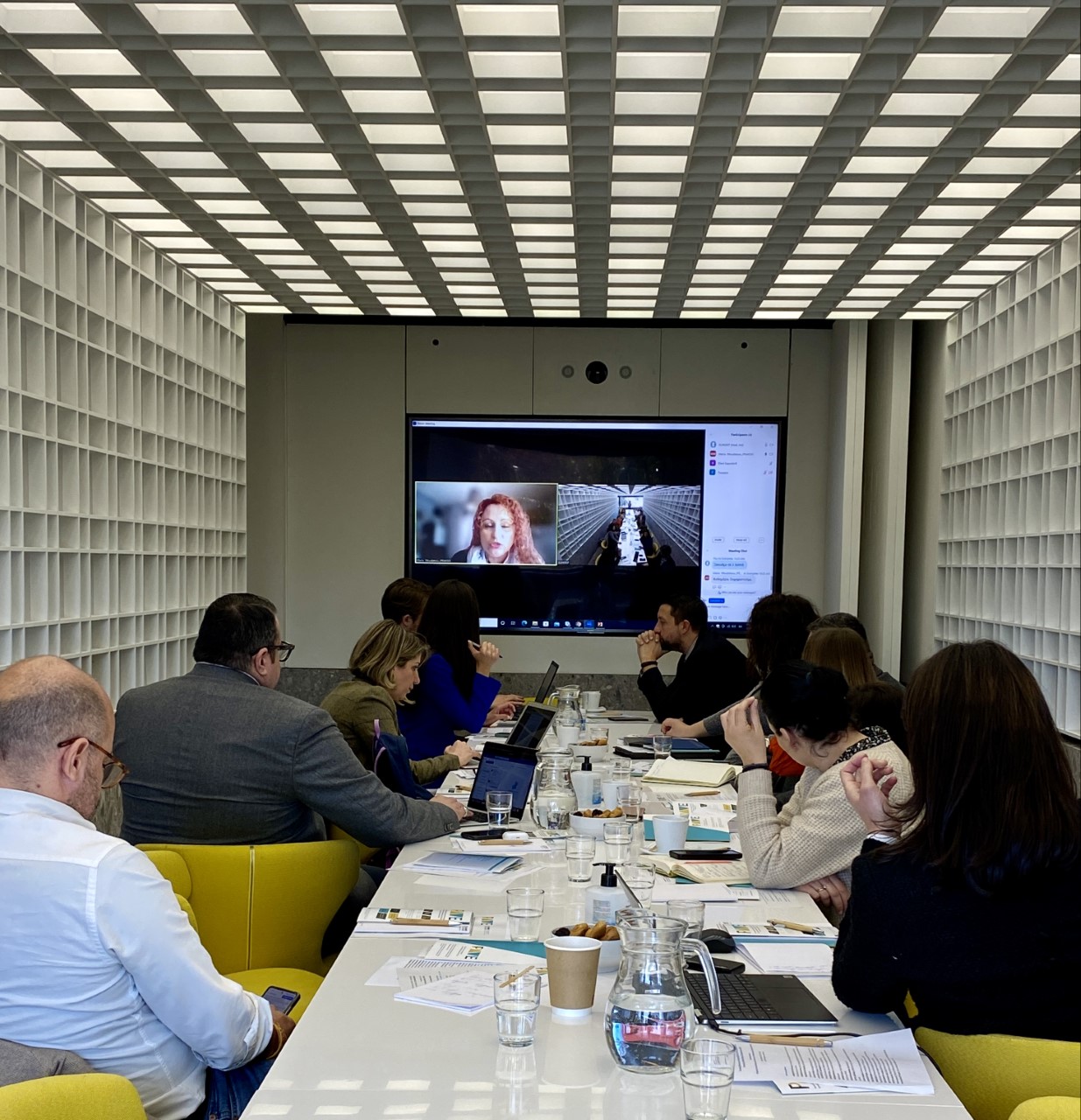PAVE partner ELIAMEP presented toolkit to practitioners
On March 08, 2023, the PAVE team of ELIAMEP organised a working session, in Athens, Greece. This event gathered experts, journalists, analysts and practitioners in the area of radicalisation, and representatives from state/governmental institutions, civil society, and embassies providing a platform for further discussion on the trends of radicalisation that leads to violent extremism in the European Union and the Western Balkan region.
The main objective of this event was to present the impact or radicalisation leading to violent extremism on European security through the PAVE risk and resilience map. This map visualises in a dual way the transnational risk and resilient factors between the Western Balkans, MENA region, and the EU found by PAVE research. In the second half, ELIAMEP presented the risk and resilience toolkit which aims to equip practitioners and policy makers with the necessary tools to decrease these transregional risks and foster community resilience. The toolkit provides a methodology and steps about two main procedures in order to effectively use the risk map: 1) risk assessment and 2) resilience assessment and mitigation plans. It also includes tips and suggestions for policy makers and practitioners in order to enhance their abilities for prevention politics and resilience initiatives.
The event consisted of two parts. In the first session, the Secretary General for Religious Affairs of the Ministry of Education and Religious Affairs Mr. Giorgos Kalantzis along with prominent participants from the government and civil society discussed the situation of religious communities in Greece and the current legal and institutional framework. He marked that islamophobia and antisemitism are a major challenge that could fuel radicalisation leading to violent extremism in Greece. He also portrayed how incidents of violence in religious places are much less frequent that what media reporting suggests and he explained the monitoring system and initiatives by the Secretariat for Religious Affairs. Mr. Athanasopoulos, Advisor to the Secretary General for Migration Policy, Ministry of Immigration and Asylum presented the actions of the current government in improving the national migration strategy and running projects to support the integration of migrants and refugees. However, Mr. Papagiannakis, Director to the Greek Council of Refugees and Mrs Moudatsou Vice President of the Praksis NGO, expressed their concerns about the effectiveness of integration initiatives, especially of those aimed at building resilience. She also presented data on the recent developments of migration patterns and people on the move highlighting the need for direct cooperation between civil society and migrants’ communities. Design, cooperation, networking and intervention on the local level were key pillars in her presentation on the prevention of violent behavior.
Another important issue raised by Mrs. Keramida, Advisor to the Secretary General for Religious Affairs, Ministry of Education and Religious Affairs, was the way in which the population is educated and trained in order to accept migrants with different religions and social backgrounds. Since 2013 places of worship have been legalised in Greece and it is easy for religious leaders to practice in special places. These can consequently build up relations with neighbors, the state, and the social context, which contributes to a stable and incremental integration.
Lastly the event was closed by the presentation of the toolkit manual by Dr Triantafyllos Karatrantos, Senior Research Fellow at ELIAMEP. Mr. Theofilopoulos, Police Director, Office of the National Security Adviser, Prime Minister's Office evaluated the toolkit positively, commending its user-friendly nature. The feedback saw the risk assessment fit to be applied by different categories of practitioners from the integration and social services fields, local authorities, policy makers and researchers. The Western Balkans is the right place in Europe to be tested, he added. Finally, Dr Lamprini Rori, Assistant Professor at the University of Athens, highlighted the positive influence that the WP6 Policy recommendations could have on building resilience of diaspora communities.
